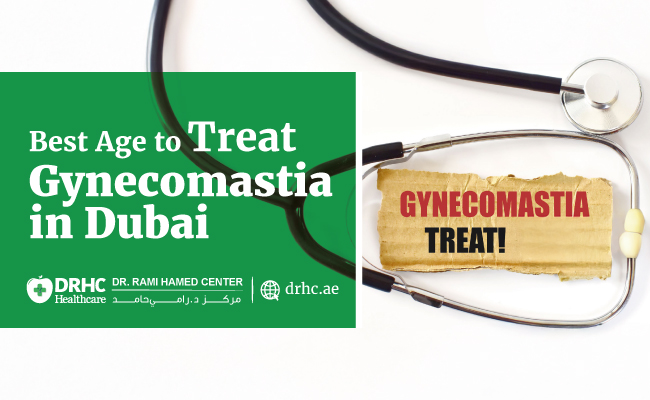
Going through hernia surgery can be a relief—finally, the discomfort and bulge are gone, and you can look forward to resuming daily activities. But for some patients, the fear of the hernia coming back remains a lingering concern. If you or a loved one is facing hernia surgery—or have already undergone one—you might be wondering: “Can a hernia come back after surgery?”
At Dr. Rami Hamed Center (DRHC) in Dubai, we often hear this question from patients. The answer is yes, recurrence is possible—but the good news is, it’s not inevitable. Understanding why hernias can come back, and what you can do to reduce the chances, plays a big part in long-term success.
What Is Hernia Recurrence?
A recurrent hernia means the hernia returns after it has been surgically repaired. It may appear in the same location or nearby, and it usually happens months or even years after the initial surgery.
While modern surgical techniques and improved mesh materials have significantly reduced recurrence rates, it still occur in a small percentage of cases. Knowing the common causes can help guide better prevention strategies.
Top Reasons Hernias Recur After Surgery
1. Inadequate Healing or Weak Tissue
Some individuals naturally have weaker connective tissue that doesn't heal as strongly after surgery. Conditions such as diabetes, smoking, or malnutrition can impair healing and contribute to recurrence.
2. Poor Surgical Techniques or Materials
In rare cases, hernia recurrence may result from how the initial surgery was performed—especially if the mesh wasn't secured properly, or the defect wasn’t fully closed. At DRHC Dubai, we use advanced laparoscopic and open repair techniques performed by experienced surgeons to reduce this risk.
3. Heavy Lifting or Straining Too Soon
After surgery, the body needs time to rebuild strength in the abdominal wall. Lifting heavy objects, intense exercise, or straining (e.g., during bowel movements) before your body is ready can put stress on the repair site.
4. Persistent Cough or Chronic Constipation
Ongoing coughing, such as from a respiratory condition or smoking, increases abdominal pressure—so does repeated straining during constipation. Over time, these pressures can stretch or tear the surgical site, leading to recurrence.
5. Obesity
Excess body weight adds ongoing pressure to the abdominal wall, increasing the strain on repaired areas. Obesity is one of the leading risk factors for both primary and recurrent hernias.
6. Infection at the Surgical Site
Infections can weaken the surrounding tissue, interfere with healing, and increase the risk of hernia recurrence. That’s why maintaining a sterile surgical environment and following post-op care instructions are essential.
How to Lower the Risk of Hernia Recurrence
While no surgery can guarantee a zero-percent recurrence rate, there are proven steps patients can take to protect their repair:
Follow Post-Operative Instructions Closely
Give your body the time it needs to heal. Avoid lifting, bending, or intense activities until your healthcare provider confirms it’s safe.
Manage Weight Effectively
If you’re overweight, gradual and sustainable weight loss can significantly reduce pressure on your abdominal wall and lower your risk of recurrence.
Treat Chronic Cough and Constipation
Seek medical help for chronic coughs and address digestive issues like constipation with a fiber-rich diet, proper hydration, and safe stool softeners if needed.
Stop Smoking
Smoking reduces oxygen delivery to tissues, delaying healing and increasing the risk of infection and recurrence. Quitting smoking—even a few weeks before surgery—can improve surgical outcomes.
Maintain a Balanced Diet
Nutrient-rich foods support tissue repair and immune health. Proteins, vitamins (especially C and A), and minerals like zinc are all important for post-surgical healing.
Our Related Blogs:
- FiLaC vs. Traditional Fistula Surgery: A Gentle Approach to Healing
- Is Bariatric Surgery Right for You? Everything You Need to Know
- Types of Weight Loss Surgeries: Gastric Sleeve, Bypass, and More
- What to Expect After Bariatric Surgery: Recovery, Diet, and Results
- Can Bariatric Surgery Help Reverse Type 2 Diabetes?
- 10 Myths About Bariatric Surgery — Debunked by Experts
- Non-Surgical Options for Hernia: Do They Really Work?
Frequently Asked Questions
How do I know if my hernia has come back?
Common signs include a bulge in the same area, discomfort or pressure, and pain—especially when lifting, coughing, or standing for long periods. If you notice these symptoms, schedule a consultation promptly.
Can a recurrent hernia be repaired?
Yes, recurrent hernias can be treated with revision surgery. In fact, modern techniques allow for better reinforcement and long-term success, particularly when performed at specialized centers like DRHC Dubai.
Is recovery harder the second time?
It depends on the size and location of the recurrence, as well as your overall health. With proper planning and care, many patients recover well from revision hernia surgery.
Conclusion: Prevention Is Possible, and Help Is Here
While the idea of a hernia coming back can be discouraging, remember that recurrence isn’t a failure—it’s simply a possibility that can often be prevented or managed. With the right guidance, surgical expertise, and lifestyle support, you can protect your health and avoid future complications.
At DRHC Dubai, our team of surgical specialists is committed to comprehensive hernia care—from first-time diagnosis to advanced repair of recurrent hernias. If you have concerns about hernia recurrence or want to explore personalized treatment options, we’re here to help you move forward with confidence.
Your journey doesn’t end with surgery—it begins with healing that lasts.
📞 Call Us: +97142798200
📍 Visit Us: Dr Rami Hamed Center, Dubai HealthcareCity
🌐 Website: www.drhc.ae
Topic: General Surgery hernia surgery




.webp)




Leave a comment